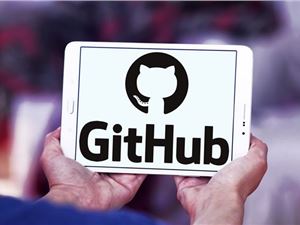GitHub is expanding the frontline of AI programming assistants from code editors to command line interfaces. The company recently launched the public beta of GitHub Copilot CLI, a new tool that allows developers to use an AI agent directly in the terminal environment to complete the entire workflow of code writing, debugging, refactoring, and version release.
Different from traditional code completion tools, GitHub Copilot CLI is designed as a comprehensive AI agent, specifically optimized for terminal environments. It can understand code context and the GitHub ecosystem, synchronizing with local development workflows, including exploring new code repositories, implementing feature capabilities based on Issues, and handling complex tasks like local problem debugging.
This tool offers a more powerful agent experience compared to the old gh-copilot extension, which will be discontinued on October 25th. Developers gain clear control over each command, avoiding frequent switching between different interfaces, thus significantly improving development efficiency.
In practical use, developers just need to input natural language prompts in the terminal, and the AI will generate corresponding complex scripts without leaving the command line interface. This design upgrades Copilot from a mere "code suggestion tool" to a "full-stack execution assistant," especially suitable for developer groups heavily reliant on CLI.
GitHub Copilot CLI is deeply integrated with the GitHub ecosystem. Users can read and write code repositories, handle Issues and Pull Requests using their existing GitHub accounts, and perform queries and operations through natural language. The installation process is relatively simple, completed by running the command npm install -g @github/copilot, supporting users with Copilot Pro, Pro+, Business, or Enterprise subscription plans.

It should be noted that enterprise users need to pay attention to administrator policy settings. If the old CLI policy is enabled, the system will automatically disable it to transition to the new tool. Currently, free users cannot access this feature, but the public beta encourages users to provide feedback to accelerate product iteration.
The core competitiveness of this tool lies in its intelligent agent design, supporting multi-step planning and execution for complex tasks. The AI system can autonomously break down problems, write test code, and perform iterative optimization until generating a Pull Request ready for review. The built-in GitHub MCP server provides access to repository data and external resources, allowing the AI assistant to collaborate efficiently like a real team member.
Through custom MCP extension features, developers can also integrate proprietary tools or data sources to enhance system capabilities, such as connecting to third-party APIs or custom workflows. This flexibility makes Copilot CLI suitable for the entire software development lifecycle, from prototype building to production deployment.
After installation, run the copilot command to enter interactive mode. Developers can use natural language instructions like "Implement user authentication functionality from Issue #123 and test deployment," and the AI will plan the execution steps, generate related code, and seek confirmation before execution. The system uses a token consumption billing model per request, ensuring cost transparency.
Community testing feedback shows that the tool performs exceptionally well in debugging local environments, reducing manual intervention and accelerating development speed. After the public beta launch, the developer community quickly became active, reporting various issues (such as permission authentication problems) in the GitHub repository and proposing improvement suggestions (such as multi-line input optimization and Shell mode support).
GitHub stated that this tool is an important component of the Copilot ecosystem expansion strategy. In the future, more model options and automation features will be integrated. As AI technology penetrates deeper into the development toolchain, the command line interface may become the next important battlefield redefined by AI technology.







